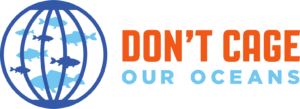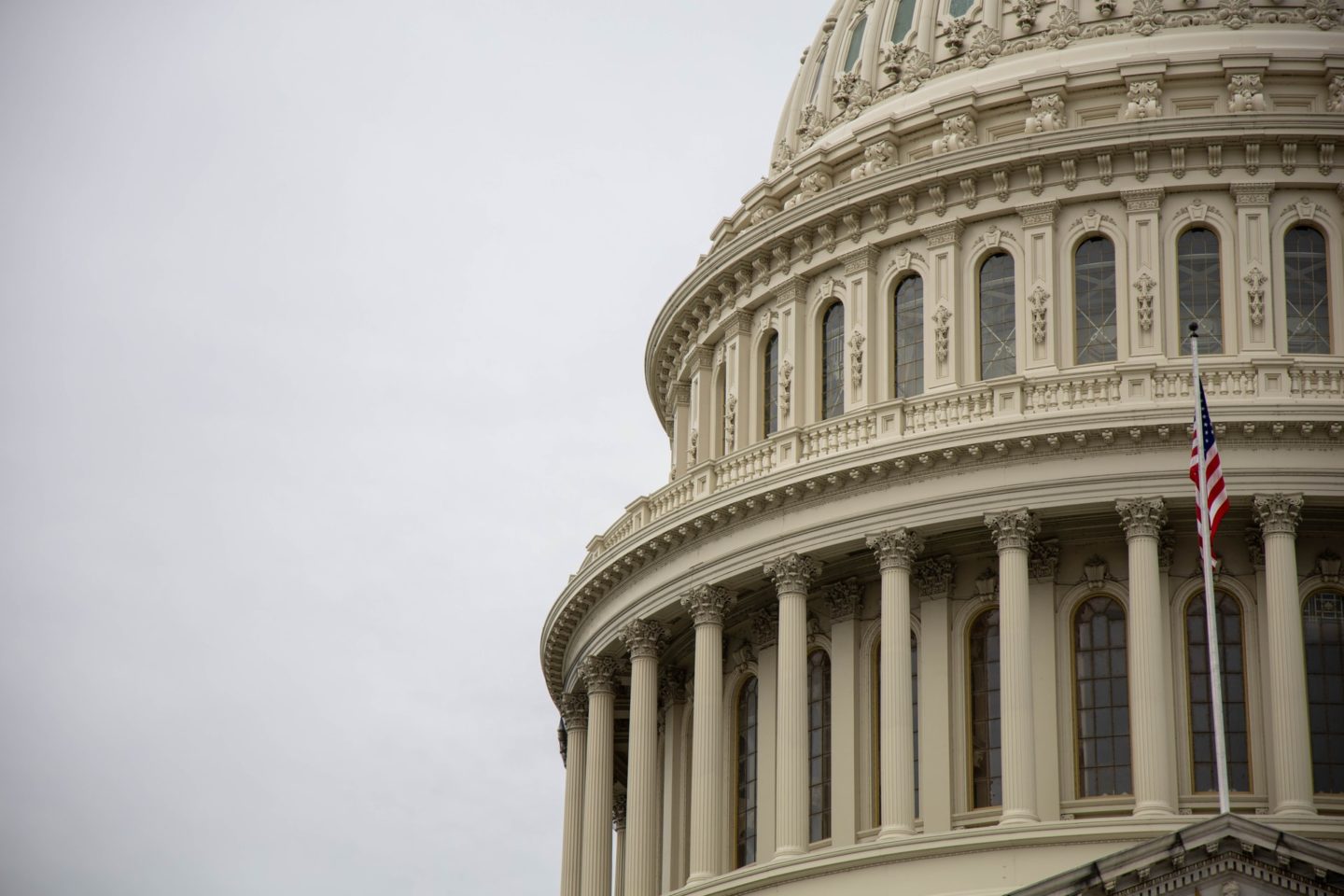| For immediate release: August 1, 2024 Contact: | |
| Feini Yin North American Marine Alliance feini@namanet.org 908-745-9768 (text or call) | Casey Willson Don’t Cage Our Oceans cwillson@dontcageouroceans.org 301-332-1202 (text or call) |
Download a PDF of this press release.
Representatives Mary Peltola and Troy Carter introduce Domestic Seafood Production Act to support U.S. fishing communities
The Act enhances seafood processing infrastructure and capacity in coastal communities, while blocking the development of industrial finfish farms in federal waters.
On July 30, 2024, Congresswoman Mary Peltola (D-AK-At Large) and Congressman Troy Carter (D-LA-2) introduced the Domestic Seafood Production Act (DSPA), legislation aimed at supporting seafood and mariculture processing in the United States, particularly in fishing communities with a demonstrated need.
“In Alaska, so many communities rely on fish and seafood production both for subsistence and good-paying jobs,” said Rep. Peltola. “My bill would support our local fishing and maritime communities while strengthening our domestic seafood supply chain.”
Through competitive grants, the Act would fund community development projects to improve local processing of seafood from wild-capture fisheries and mariculture, defined as the cultivation of shellfish and aquatic plants. It would also prohibit federal agencies from developing offshore finfish aquaculture in United States federal waters without congressional approval.
“Processing is often a bottleneck when it comes to keeping seafood supply chains localized and transparent. By boosting seafood processing at home, this legislation ensures that federal support will go toward fisheries that actually benefit local communities,” said Niaz Dorry, coordinating director of the North American Marine Alliance, a fishermen-led organization building a broad movement for healthy fisheries and thriving fishing communities.
Examples of grant-eligible projects include the retrofitting of existing processing infrastructure, the creation of new infrastructure, or training and education initiatives for seafood workers. Priority would go to projects that hire local residents, address food security and hunger, and sell seafood domestically, particularly through community fish markets and farmers’ markets.
The bill has received support from fishermen, chefs, and small business owners that want to see working waterfronts and seafood economies flourish in coastal communities. “It was through commercial fishing in Alaska that I came to deeply value the way that strong seafood systems are tied to the wellbeing of coastal communities — which directly ties to the wellbeing of the ocean. This bill provides much-needed support to communities that have long been rooted in fisheries for resilience, security, and cultural heritage. It also helps protect our shared oceans in Alaska and beyond,” said Ryan Horwath, who jigs for cod and rockfish out of Kodiak, AK and also runs Pacific Cloud Seafoods based in Buffalo, NY.
“Congressman Troy Carter’s backing of DSPA is a testament to his dedication to our independent family fishers. By opposing destructive offshore industrial fish farming, he safeguards their livelihoods from being jeopardized. Our local fishing families already face significant challenges, and the intrusion of multinational corporations threatening our wild fish stocks only adds to their struggles. Additionally, this bill promises to restore our processing infrastructure, which has suffered from hurricanes and has been acquired and often shuttered by external entities,” said Dana Honn, owner of Carmo, a restaurant in New Orleans, LA that serves all locally sourced seafood.
“As a small business owner myself, I understand what is at stake when we turn away from small- and medium-scale operations, towards corporate consolidation. DSPA will protect our coastal communities and local economies from further corporate takeover,” said Renée Blanchard, owner of Church Alley Café and Grocery in New Orleans.
The bill further specifies that federal agencies like the National Oceanic and Atmospheric Administration (NOAA) may not award financial assistance for the purposes of facilitating offshore aquaculture.
Already outlawed in Alaska and Washington states, industrial finfish aquaculture comes with a variety of impacts, including harmful algal blooms, mass escapes and disease outbreaks, and the unsustainable harvesting of wild forage fish to feed farmed fish, which exacerbates overfishing and threatens global food security. The mass production of farmed fish, including salmon and shrimp, also floods markets and competes with wild heritage fisheries.
“My community has been fishing for sockeye salmon in Bristol Bay for hundreds of years. I started at nine years old on my grandfather’s boat. Our fish is high-quality, it’s high-nutrition, it’s the best in the world. And it’s very sustainable. I know that word is thrown around a lot now, but it truly is. Now I’ve been told there’s a glut of our fish, and they can’t be sold. Yet people say they want to build more fish farms because there’s not enough food. That doesn’t compute with me,” said Ronalda Angasan, a commercial fisherwoman of Ugashik and Kanatak descent, who lives in Anchorage, AK and serves as agriculture program director at Alaska Village Initiatives.
“This bill is a two-for-one. By putting resources into local and regional seafood supply chains, it props up the fishing communities and working waterfronts that are integral to the Gulf of Mexico’s cultural fabric. It also puts checks in place to protect the Gulf from industrial fish farms and their troubled record of water quality issues,” said Christian Wagley, coastal organizer with Healthy Gulf, an organization headquartered in New Orleans.
In June, more than 160 groups sent a letter to the UN Food and Agriculture Organization to remove the farming of carnivorous finfish, including salmon, from its definition of “sustainable aquaculture.”
“In every instance when fish are reared in our oceans, they are carnivorous. And in an example of robbing Peter to pay Paul, it takes more fish out of the ocean to grind up into feed for the farmed fish, than had one simply consumed the wild fish to begin with,” said James Mitchell, legislative director of Don’t Cage Our Oceans, a coalition of more than 50 fishing, farming, culinary, and environmental groups working to stop the development of offshore finfish farming in the U.S. while uplifting values-based aquaculture and seafood systems.
“Not only that, industrial fish farms release large amounts of untreated fish waste and other pollutants into surrounding waters — essentially treating the ocean as a toilet bowl,” Mitchell added. “On top of bolstering livelihoods and infrastructure in our coastal communities, this bill puts much-needed safeguards in place to prevent rogue agency action and ensure healthy ocean ecosystems.”
Recent research has shown that densely packed fish populations, excess feed, and overuse of antibiotics and antiparasitics lead to mass mortality events and the creation of oxygen-starved “dead zones” around aquaculture production facilities. The push to move finfish farms farther offshore is a newer development, increasingly facilitated by technologies like artificial intelligence — yet research suggests that increased reliance on technology actually leads to greater hazards.
“Factory fish farms harm public health, marine ecosystems, and communities like mine that rely on the ocean and its resources,” Horwath said. “And they are a far cry from the community-based fishing I know and love, based on reverence for wild fish and a reciprocal relationship with nature and place.”
Additional Support:
“Here on Long Island we used to have big clamming and oyster communities. Hot dog stands in New York City used to be five-cent oysters. Now our sea life is declining tremendously. We are working so hard to clean up these polluted inlets in Long Island, where we have nitrogen build up at a rapid, really alarming rate. Offshore fish farming would only contribute to more pollution and disease in our waters, and set us back even further,” said Abby Blessington, co-founder and general manager for Montauk Seaweed Supply.
“The federal government has designated several ‘aquaculture opportunity areas’ off the coast of Southern California, including areas near a radioactive DDT dumpsite. Instead of inviting outside industries in to turn a profit at the expense of our waters, the health of our people, and our local fishermen, I’d rather see investment in the fishing families that are already doing the work to feed local communities healthy, high-quality protein. Come by our Tuna Harbor Dockside Market any Saturday and you’ll get a glimpse into how vibrant San Diego’s commercial fisheries are,” said Pete Halmay, a sea urchin fisherman who represents the San Diego Fishermen’s Working Group.
“Expanding local processing would be a boon to working waterfronts. It would allow hard-working food producers to provide more healthy seafood to local and regional markets. And it would all feed back into our coastal communities. This is exactly the kind of legislation we need,” said Jason Jarvis, a small-scale fisherman in Rhode Island, founding member of the fishermen-led Quonnie Fish Cooperative, and board president of the North American Marine Alliance.
“We’re not going to let big fish farms come in and take away our local jobs, take away our economy, and pollute our oceans. Big industry is not the answer. The answer is putting money into creating and supporting markets for the fish we’re already catching. And making sure that food is going on our plates and being honored,” said Chef Colette Nelson, founder of Give A Fish in Whidbey Island, WA and former executive chef and owner of Ludvig’s Bistro, a seafood restaurant in Sitka, AK.
###
About Don’t Cage Our Oceans
Don’t Cage Our Oceans is a coalition of organizations joining together to fight legislation and policies that would industrialize our oceans and allow the growth of the harmful offshore finfish farming industry. Learn more at dontcageouroceans.org.

